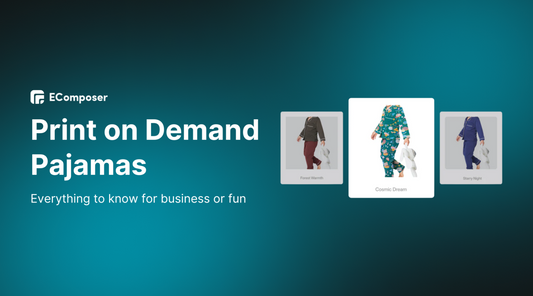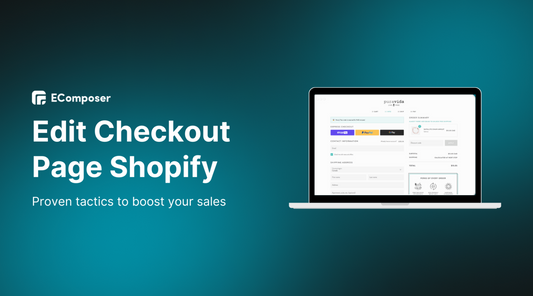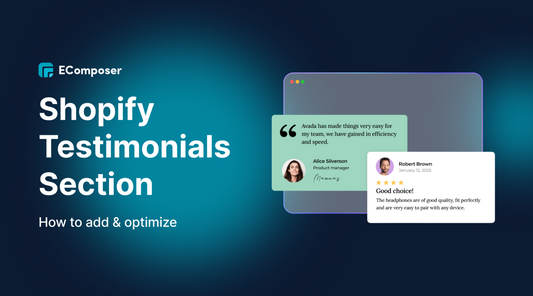The complete guide to Shopify 3rd party apps - Must read

Table Of Contents
As an e-commerce store owner, you're always looking for ways to improve your business, streamline tasks and enhance the customer experience. That's where third-party apps come in!
Shopify's app store offers a lot of apps that can add new features, automate tasks, and ultimately help your business succeed. But with so many options available, finding the right apps for your store can be overwhelming. That's why we've put together this complete guide.
We are going to walk you through the definition and benefits of Shopify 3rd party apps, how to choose the right ones for your needs, and the installation process step-by-step. From automating inventory management to optimizing your marketing campaigns, you'll discover everything you need to know to take your Shopify store to the next level.
Don't miss out on this opportunity to unlock the full potential of your e-commerce business - read our complete guide now!
What are Shopify apps?

Shopify apps are third-party software applications that can be added to a Shopify store to provide additional functionality and features. These apps can help store owners with tasks like marketing, sales, customer service, shipping, inventory management, and more.
Shopify's app store contains thousands of apps that can be installed and integrated into a store, either for free or for a fee. Some apps are developed by Shopify itself, while others are created by independent developers and companies.
Why do you need Shopify apps?

Shopify is a popular e-commerce platform that provides businesses with the tools and infrastructure they need to sell products and services online. One of the key advantages of Shopify is its vast ecosystem of third-party apps that can be added to a store to enhance functionality, streamline tasks, and improve the customer experience.
These apps can automate tasks like order processing, inventory management, and shipping, saving time and reducing the risk of errors. They can also add new features to a store, such as abandoned cart recovery, product reviews, loyalty programs, and more. By improving the shopping experience for customers, apps can help businesses build brand loyalty and drive sales.
[ecom-global-block]ecom-shopify-trial-block[/ecom-global-block]
Marketing is another critical aspect of running an e-commerce business, and Shopify apps can help optimize marketing efforts by providing tools for SEO optimization, social media integration, email marketing campaigns, and various strategies to boost website traffic and improve sales. By automating certain tasks, apps can reduce labor costs and improve efficiency, ultimately leading to higher profits.
Many of these apps are free or offer a basic version at no cost, while others require a monthly subscription fee. With so many options available, businesses can customize their Shopify store to meet their specific needs and goals, whether they're focused on growth, customer engagement, or operational efficiency.
In short, Shopify apps provide businesses with a powerful set of tools to help them succeed in today's competitive e-commerce landscape. Whether you're a small business just starting or a large enterprise looking to streamline operations, there's likely an app available that can help you achieve your goals and take your business to the next level.
How to choose the right Shopify apps

Choosing the right Shopify apps can be a daunting task, given the sheer number of options available in the Shopify app store. Here are some steps you can take to find the right apps for your business:
Identify your business needs
Before you start browsing the app store, it's important to identify what you need from an app. Determine which areas of your business could benefit from automation or additional functionality, and prioritize them based on their impact on your bottom line.
For instance, you are a newcomer to the Shopify platform and you do not have coding knowledge; so you want to find an app which can help you build stunning pages fast and easily to attract customers. You may look for the best Shopify page builder apps.
One of the most comprehensive Shopify page builder apps is EComposer which is rated 5/5 stars by a lot of customers. This app allows you to create any page type with a powerful editor. Besides, the support team are ready 24/7 to assist you.
Read reviews and ratings

Once you have a list of potential apps, read through their reviews and ratings carefully. Look for common themes in the feedback, such as ease of use, reliability, and customer support. Pay attention to comments that mention specific features or issues that are relevant to your business needs.
Test the app before committing
Many apps offer a free trial period or a basic version with limited functionality. Take advantage of these offers to test the app thoroughly before committing to a subscription. This will give you a chance to see if the app meets your expectations and is worth the investment.
Consider integration with other apps
If you're using other apps or services to manage your business, make sure the app you choose integrates seamlessly with them. Integration can save you time and prevent errors by automating data transfer between different systems.
Evaluate the cost

While many apps offer a basic version at no cost, others require a monthly subscription fee or charge per transaction. Consider how much you're willing to invest in an app and whether the benefits it provides justify the cost.
By following these steps, you can narrow down your choices and select the Shopify apps that are best suited to your business needs and goals.
How to install Shopify apps for your online stores
Installing Shopify apps for your online store is a straightforward process. Here are the general steps you can follow.
Login to Your Shopify Account
First, log in to your Shopify account and navigate to the Shopify App Store.
If you have not had your Shopify account, sign up now to enjoy the first 3 months for only $1/month.

Browse the App Store

Once inside the app store, browse the various categories or use the search bar to find the app you want to install.
Choose the app you need
Read through the app description, reviews, and ratings to ensure that it meets your needs. Consider installing only relevant and reputable apps that add value to your business processes.
Install the App
 After opening the app you want to install, click on the "Add app" button beside the app name to begin the installation process. You may be prompted to confirm the installation or agree to certain terms and conditions.
After opening the app you want to install, click on the "Add app" button beside the app name to begin the installation process. You may be prompted to confirm the installation or agree to certain terms and conditions.
Configure the App
After installing the app, you will be redirected to the app settings page. Follow the prompts to configure the app based on your preferences and business requirements.
Test the App
Once the app is configured, test it thoroughly to ensure that it works as expected and meets your needs. If any issues arise or if you need assistance with the app, reach out to the app developer for support.
Repeat
Repeat the process for each additional app you want to install in your store. It's important to note that some apps may require additional setup or integration with other services to work correctly. Be sure to read the app documentation carefully and follow the instructions provided by the app developer.
Note: Although Shopify apps can benefit your business with their amazing features, you have to consider whether they are necessary or not. That’s because installing a lot of apps in your online stores makes page loading speed slower which influences the customer experience.
Wrapping Up
In conclusion, third-party apps are a powerful tool for any Shopify store owner looking to improve their business operations and enhance the customer experience. By choosing the right apps and integrating them seamlessly into your store, you can automate tasks, add new features, and ultimately drive more traffic and sales.
With our complete guide, you now have all the information you need to make decisions about which apps to install and how to configure them for maximum impact. So what are you waiting for? Start exploring the app store today and take your e-commerce business to the next level!
[ecom-global-block]ecom-shopify-commerce-coach-block[/ecom-global-block]
Others also read:
How to design a Shopify store in 10 minutes
Top 15+ Best One Product Shopify Stores Examples























2 comments